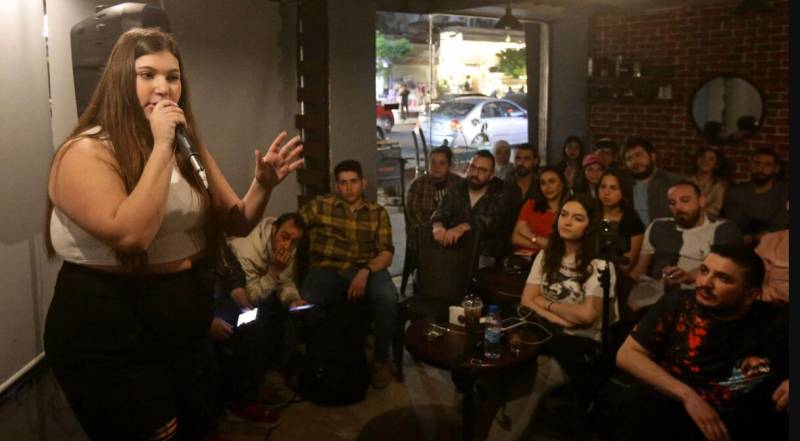Laughter returns as stand-up comedy reemerges in Syria after Assad era

Stay tuned with 24 News HD Android App

In post-Assad Syria, stand-up comedians are re-emerging to challenge taboos, mocking the former president and his regime and even testing the waters with Damascus's new rulers.
Melki Mardini, a performer in the Syrian capital's stand-up scene, is among those embracing newfound freedoms.
"The regime has fallen," he declares from the stage, referring to Bashar al-Assad's abrupt departure earlier this month, ending more than half a century of his family's rule.
The audience at an art gallery hosting the show remains silent.
"What's the matter? Are you still scared?" Mardini says, triggering a mix of awkward laughter and applause.
"We've been doing stand-up for two years," says the 29-year-old. "We never imagined a day would come when we could speak so freely."
Now, his performances are "safe spaces", he says.
"We can express our views without bothering anyone, except Bashar."
Under the old regime, jokes about elections, the dollar or even mentioning the president's name could mean arrest or worse.
Chatting with the audience during his set, Mardini learns one man is a psychiatrist.
"A lord in the new Syria!" he exclaims, imagining crowds rushing into therapy after five decades of dictatorship.
For two hours, 13 comedians -- including one woman -- from the collective Styria (a play on the words Syria and hysteria) take the stage, sharing personal stories: an arrest, how they dodged compulsory military service, how they sourced dollars on the black market.
'Syria wants freedom'
"Syria wants freedom!" declares Rami Jabr as he takes the stage.
"This is our first show without the Mukhabarat in the room," he quips, referring to the feared intelligence agents.
He reflects on his experience in Homs, dubbed the "capital of the revolution" in March of 2011 when anti-government protests broke out in the wake of the Arab Spring, followed by brutal repression.
A commercial representative for a foreign company, Jabr recalls being detained for a month by various security services, beaten, and tortured with a taser, under the accusation that he was an "infiltrator" sent to sow chaos in Syria.
Like him, comedians from across the country share their journeys, united by the same fear that has suffocated Syrians for decades living under an iron fist.
Hussein al-Rawi tells the audience how he never gives out his address, a vestige of the paranoia of the past.
"I'm always afraid he'll come back," he says, referring to Assad. "But I hope for a better Syria, one that belongs to all of us."
'Pivotal moment'
Said al-Yakhchi, attending the show, notes that free speech is flourishing.
"During the last performance before the regime fell, there were restrictions," says the 32-year-old shopkeeper.
"Now, there are no restrictions, no one has to answer to anyone. There's no fear of anyone."
Not even Syria's new rulers -- a diverse mix of rebel groups, including Islamists and former jihadists, who quickly marched on Damascus and toppled Assad's government.
"We didn't live through a revolution for 13 or 14 years... just to have a new power tell us, 'You can't speak,'" Mardini says.
When not performing on stage, Mary Obaid, 23, is a dentist.
"We unload everything we've been holding inside -- we do it for all Syrians," she says.
"Each person shares their own experience. The audience reacts as if each story has happened to them too."
Of the country's new leaders, Obaid says she will wait to see "what they will do, then we'll judge".
"Right now, we feel freedom," she says. "We hope we won't be targets of harassment."
"We're at a pivotal moment, transitioning from one era to another," she adds.
"Now we are the country of freedom, and we can put forward all our demands. From now on, never again fear."
